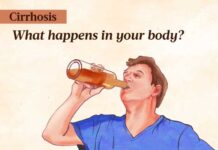
Salt is a tricky subject. On the one hand, sodium is an important mineral that is involved in muscle contraction and the regulation of blood pressure, blood volume and nerve function. On the other hand, most American consume too many high-sodium foods, which can wreak havoc on everything from bone and kidney health to blood pressure levels.
In fact, a major study published in November 2023 confirmed that reducing salt intake can significantly lower blood pressure, offering a potentially life-saving strategy for both healthy individuals and those already managing hypertension.
Study: Salt’s Effect on Blood Pressure
The research, conducted by Northwestern University Feinberg School of Medicine, Vanderbilt University Medical Center and the University of Alabama at Birmingham and involving a large group of participants, investigated the impact of lowering sodium intake on individuals with and without high blood pressure medications. The findings revealed that simply reducing daily salt intake by roughly one teaspoon (around 2,300 milligrams of sodium) resulted in a noteworthy decrease in blood pressure, comparable to the effects of certain blood pressure medications.
This positive effect was observed consistently, regardless of whether participants already had high blood pressure or were taking medication to control it. The study highlighted that reducing dietary sodium intake can be a beneficial strategy for individuals aiming to maintain healthy blood pressure levels, offering an alternative or potentially complementary approach to medication use.
How did the study work? More than 200 individuals aged 50 to 70 were randomly assigned to eat either a high-sodium diet or low-sodium diet for a week, and then the participants switched to the other diet for a week.
Here’s what the researchers found:
“Compared to their usual diet, 72% of participants had lower systolic blood pressure when they followed the low-sodium regimen.
“Systolic pressure dropped 7 to 8 mm Hg when they ate the low-sodium diet compared to the high-sodium diet, and by 6 mm Hg compared with their usual eating habits, researchers said.”
The lead author of the study, Norrina Allen, a professor of preventive medicine at Northwestern University, emphasized that the findings addressed a crucial knowledge gap. Previously, it was unclear whether individuals already on medication could further benefit from lowering their sodium intake. The new research confirms that even in this population, reducing salt consumption can lead to substantial blood pressure reductions.
“We found that 70-75 percent of all people, regardless of whether they are already on blood pressure medications or not, are likely to see a reduction in their blood pressure if they lower the sodium in their diet,” said Allen in the press release.
“High blood pressure can lead to heart failure, heart attacks and strokes, because it puts extra pressure on your arteries,” Allen added. “It affects the heart’s ability to work effectively and pump blood.”
These studies hold significant implications for public health, considering that high blood pressure is a major risk factor for heart disease, stroke and other chronic illnesses. By highlighting the effectiveness of a simple dietary modification in lowering blood pressure, the research encourages individuals to be mindful of their salt intake and adopt healthier eating habits. This approach, alongside regular medical checkups and adherence to prescribed medications when necessary, can contribute significantly to reducing the burden of cardiovascular diseases.
It is important to note that while these studies establish a clear link between reduced salt intake and lower blood pressure, they do not advocate completely eliminating salt from the diet. After all, the body needs this electrolyte to run optimally.
Consulting with a health care professional to determine a personalized appropriate sodium intake level based on individual health needs remains crucial.
Important Notice: This article was originally published at https://draxe.com by Joe Boland where all credits are due.
Disclaimer
The watching, interacting, and participation of any kind with anything on this page does not constitute or initiate a doctor-patient relationship with Dr. Farrah™. None of the statements here have been evaluated by the Food and Drug Administration (FDA). The products of Dr. Farrah™ are not intended to diagnose, treat, cure, or prevent any disease. The information being provided should only be considered for education and entertainment purposes only. If you feel that anything you see or hear may be of value to you on this page or on any other medium of any kind associated with, showing, or quoting anything relating to Dr. Farrah™ in any way at any time, you are encouraged to and agree to consult with a licensed healthcare professional in your area to discuss it. If you feel that you’re having a healthcare emergency, seek medical attention immediately. The views expressed here are simply either the views and opinions of Dr. Farrah™ or others appearing and are protected under the first amendment.
Dr. Farrah™ is a highly experienced Licensed Medical Doctor certified in evidence-based clinical nutrition, not some enthusiast, formulator, or medium promoting the wild and unrestrained use of nutrition products for health issues without clinical experience and scientific evidence of therapeutic benefit. Dr. Farrah™ has personally and keenly studied everything she recommends, and more importantly, she’s closely observed the reactions and results in a clinical setting countless times over the course of her career involving the treatment of over 150,000 patients.
Dr. Farrah™ promotes evidence-based natural approaches to health, which means integrating her individual scientific and clinical expertise with the best available external clinical evidence from systematic research. By individual clinical expertise, I refer to the proficiency and judgment that individual clinicians acquire through clinical experience and clinical practice.
Dr. Farrah™ does not make any representation or warranties with respect to the accuracy, applicability, fitness, or completeness of any multimedia content provided. Dr. Farrah™ does not warrant the performance, effectiveness, or applicability of any sites listed, linked, or referenced to, in, or by any multimedia content.
To be clear, the multimedia content is not intended to be a substitute for professional medical advice, diagnosis, or treatment. Always seek the advice of your physician or other qualified health providers with any questions you may have regarding a medical condition. Never disregard professional medical advice or delay in seeking it because of something you have read or seen in any website, video, image, or media of any kind. Dr. Farrah™ hereby disclaims any and all liability to any party for any direct, indirect, implied, punitive, special, incidental, or other consequential damages arising directly or indirectly from any use of the content, which is provided as is, and without warranties.








